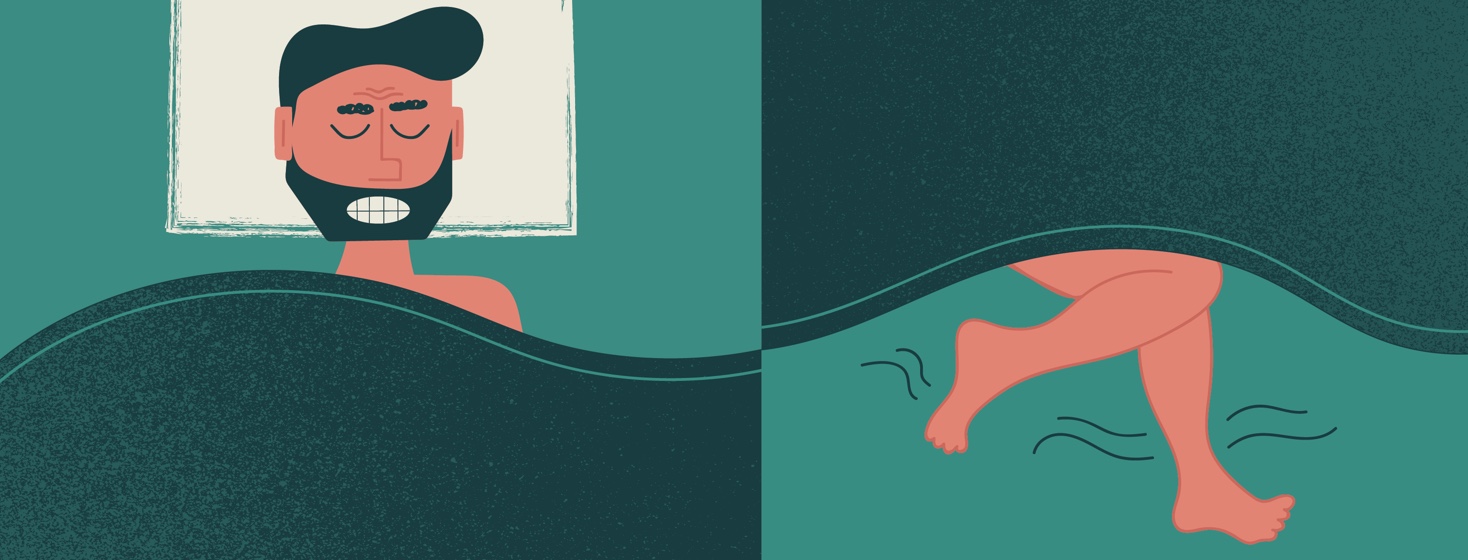Lessons Learned: Breaking a Mouth Night Guard
Do you grind or clench your teeth at night, along with kicking the night away? Well, I do. In fact, I recently had to shell out $350 to have my night guard rebuilt because it broke under the force of my nightly clench.
Admittedly, I have been more stressed than usual with all the worry and isolation of 2020, but it’s been years since my jaw clenching was a problem. Turns out, my lifelong clenching and restless legs syndrome (RLS) are good pals, and anxiety can make both worse.
What is bruxism?
Bruxism is the medical term for grinding or clenching your teeth. If you do this while awake it is called daytime bruxism and if you do it while asleep it is called sleep bruxism.1
Both restless legs syndrome and bruxism are classified as sleep movement disorders or parasomnias.2
The connection between RLS and the teeth
I only recently learned (while writing for this site, in fact), that restless legs syndrome and bruxism often go hand-in-hand. And, both conditions run in families. Even my dental hygienist and dentist did not know that people with RLS often clench or grind their teeth at night.
A 2019 study found that about 1 out of every 3 people with RLS ground or clenched their teeth while asleep. In the general population, it is normally about 1 out of 10. Bruxism can cause insomnia, temporomandibular joint (TMJ) syndrome, face, ear, and tooth pain, and gum and teeth problems.2
I have had all of those issues over the years, but never connected it to my RLS until a few weeks ago. Insomnia (check), TMJ jaw popping (check), and face, jaw, ear, and tooth pain (check). I even broke a molar once, which is why I have been wearing a night guard for years.
Searching for relief
Now that my night guard is rebuilt and sitting where it should all night, I have been working on other ways to relieve the sore muscles in my jaws. If I break that night guard again it’s going to require a full replacement at $900, so I have plenty of incentive to find a solution!
My top options are wearing my night guard religiously (which I’m already doing), finding ways to destress, or asking for medicines that may or may not help. I’m not a fan of the medicine route, so destressing it is. So far I have tried:
- Stretching and massaging the jaw muscles a few times during the day
- Taking ibuprofen occasionally
- Yoga classes on YouTube
- Nature walks near my house
More stretching, less stress
Stretching my jaw muscles seems to help the most, followed by the occasional pain reliever. In terms of general stress relief, I haven’t yet found my sweet spot where yoga classes are concerned.
Yoga has always been my favorite destresser and after years of yoga classes (with some really good instructors) I’m kinda picky. In the past, yoga helped tremendously with the kicking and leg pain of RLS. But now, I’m in this weird in-between land of middle age where the classes for 20-somethings are too much and the chair yoga classes for older people are not nearly challenging enough.
Do you have both RLS and clenching? If you do, please share in the comments what has worked for you when it comes to unclenching and reducing your stress. Any suggestions for yoga classes suited to a fairly fit middle age person are also appreciated.

Join the conversation